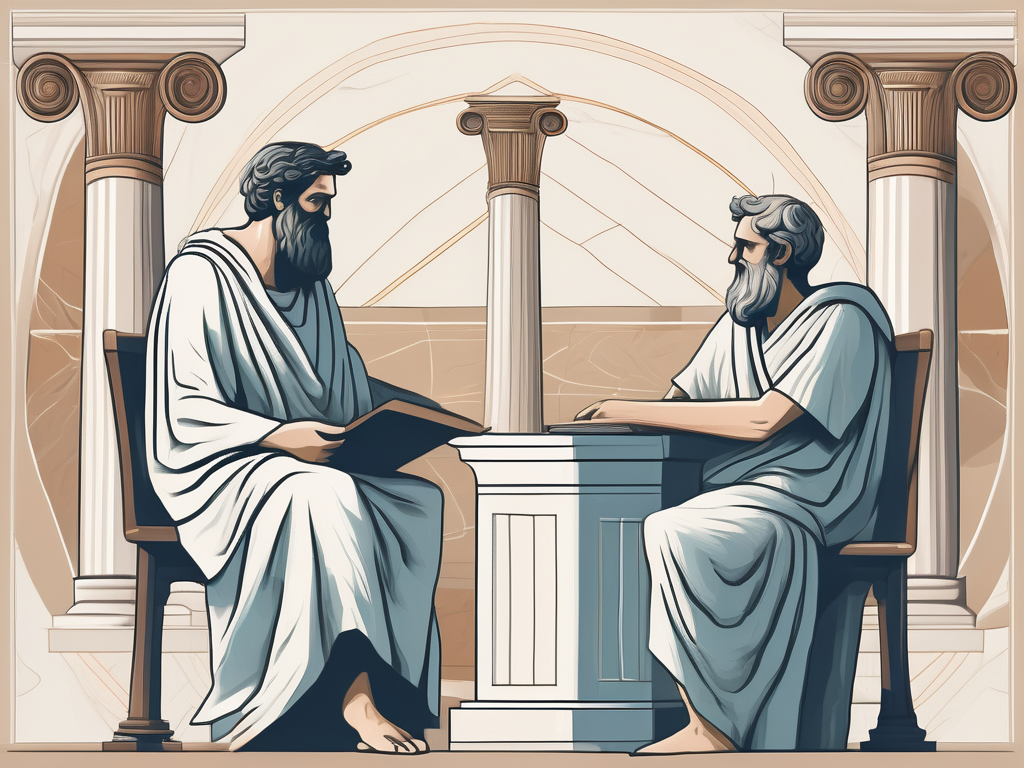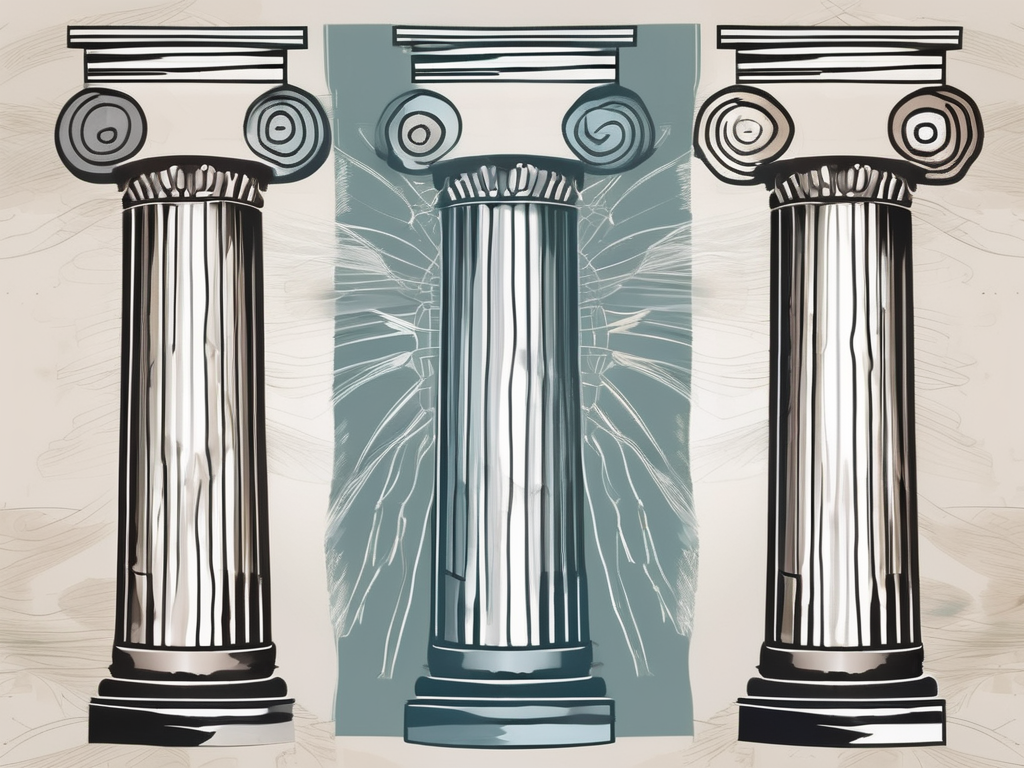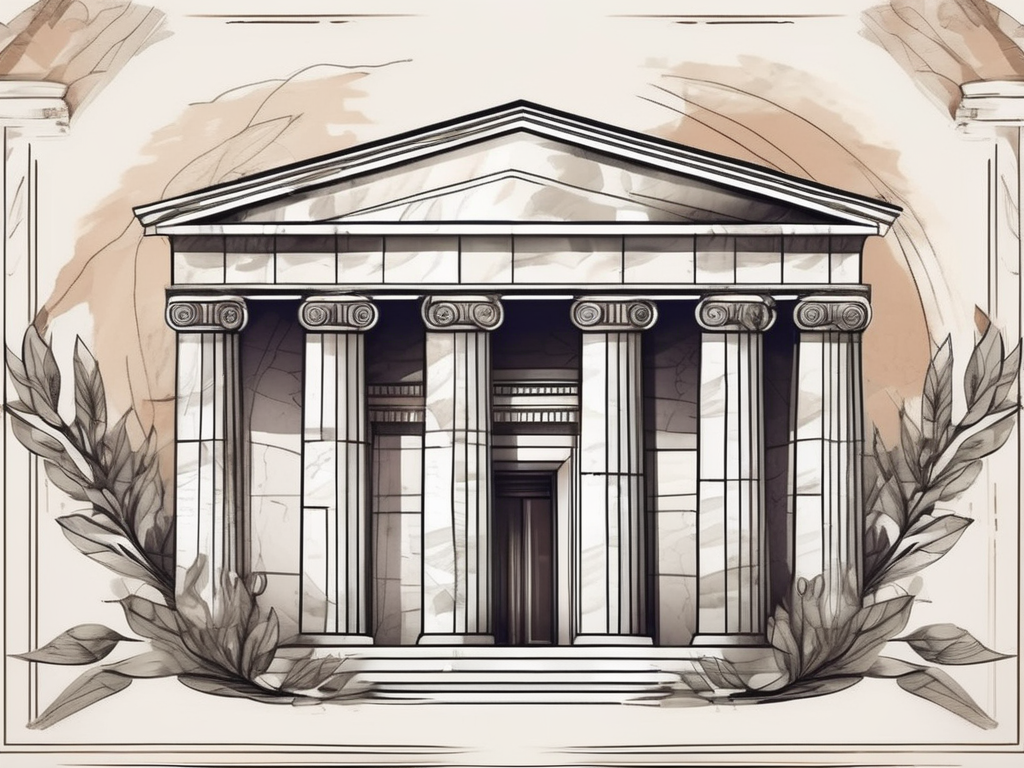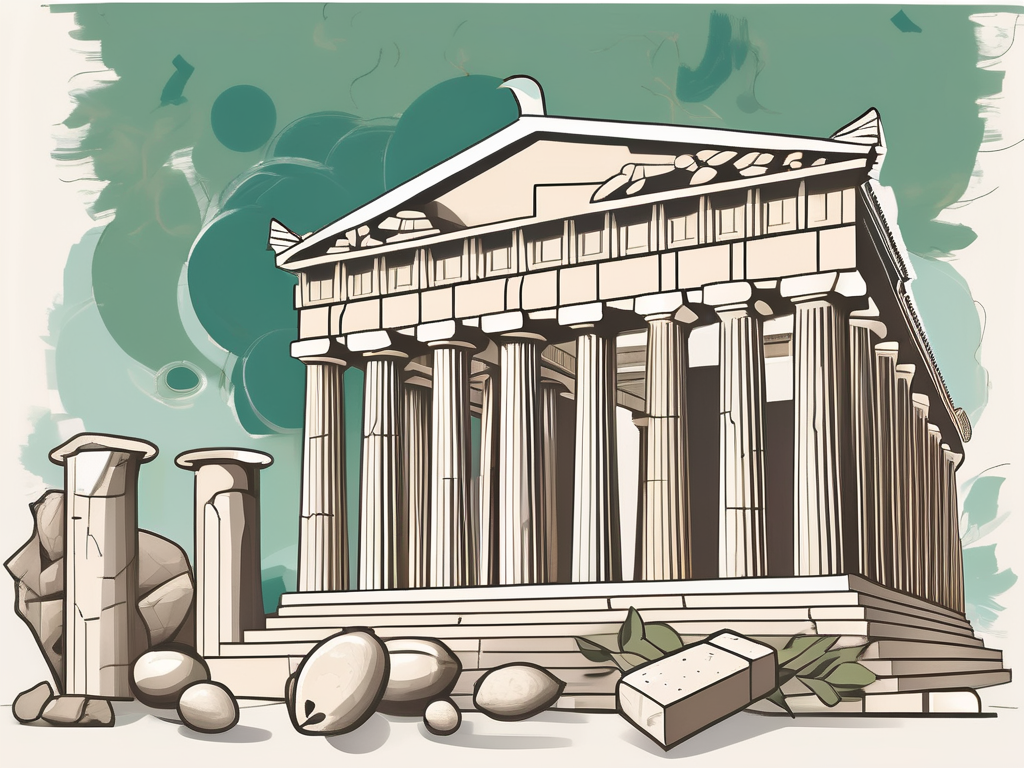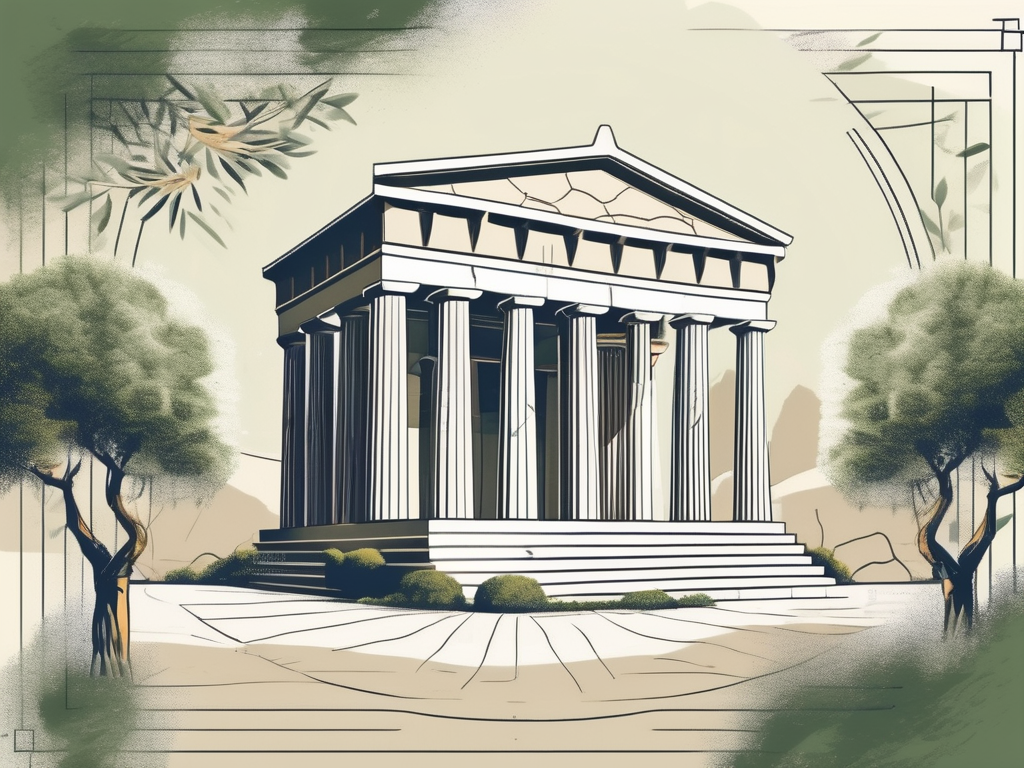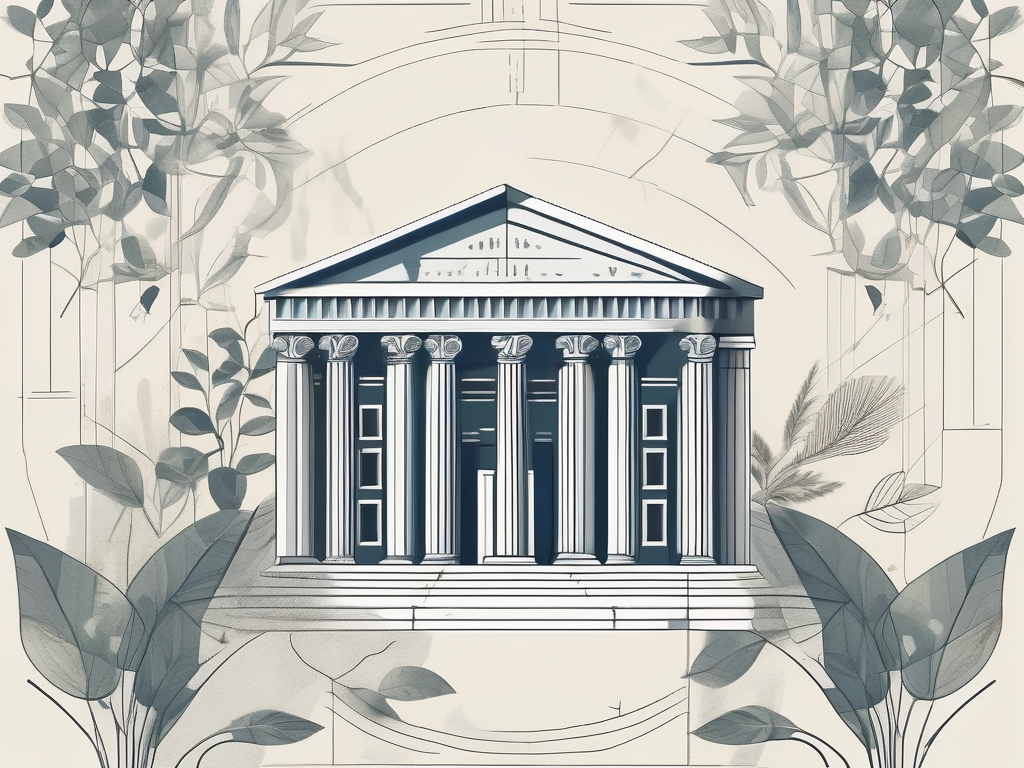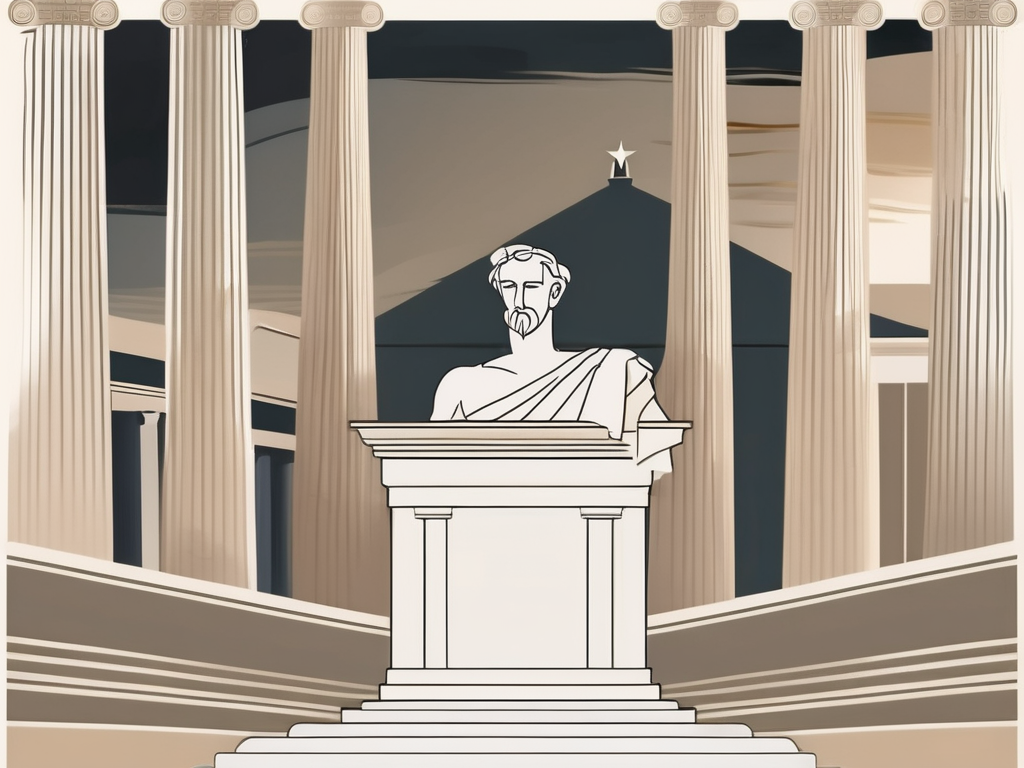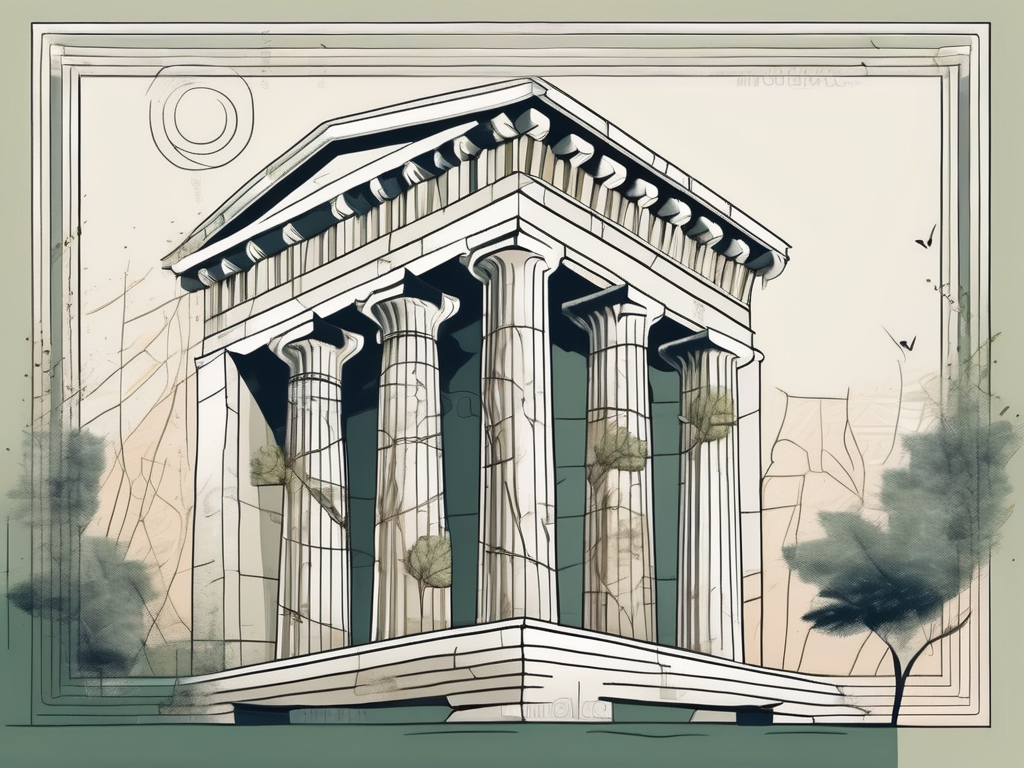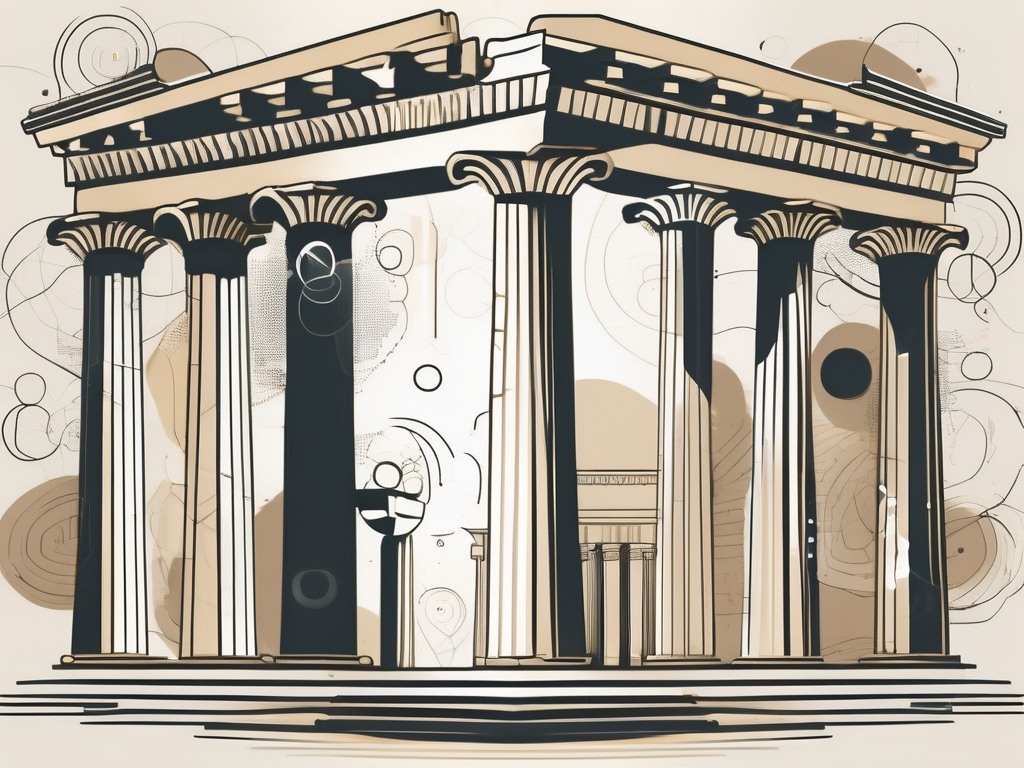Aristotle, known as one of the greatest Greek philosophers of all time, has left a lasting impact on the fields of philosophy, ethics, politics, logic, and more. His teachings have shaped the way we think about the world and continue to influence modern thought. From his early life and education to his enduring legacy, Aristotle’s journey is one worth exploring.
Early Life and Education of Aristotle
Before delving into Aristotle’s philosophical achievements, it is important to understand his background. Born in 384 BC in Stagira, a small town in Greece, Aristotle came from a family with intellectual roots. His father, Nicomachus, served as a physician to the Macedonian king, and this connection would later play a significant role in Aristotle’s life.
Birth and Family Background
Aristotle’s birth occurred during a time of great cultural and intellectual flourishing in Greece. It was a time when philosophy and scientific inquiry were taking root, with esteemed thinkers such as Plato leading the charge. Growing up, Aristotle was exposed to these intellectual currents, nurturing his own curiosity and eagerness to learn.
But what was life like in Stagira, the town where Aristotle spent his early years? Stagira was a bustling coastal town, known for its vibrant marketplace and active port. The town was a melting pot of different cultures and ideas, providing Aristotle with a diverse and stimulating environment from a young age. The sights, sounds, and conversations of Stagira would have undoubtedly influenced his intellectual development.
Though not much is known about his early family life, it is believed that Aristotle’s upbringing within an intellectual and scholarly environment greatly influenced his later pursuits. His father’s profession as a physician would have exposed Aristotle to the wonders of the human body and the intricacies of medicine. This early exposure to the sciences may have sparked his interest in the pursuit of knowledge and understanding.
Aristotle’s Time at Plato’s Academy
At the age of seventeen, Aristotle embarked on a transformative journey when he became a student at Plato’s Academy in Athens. Plato, famous for his philosophy and dialogue, became Aristotle’s mentor and teacher. Under Plato’s guidance, Aristotle honed his critical thinking skills and developed a deep appreciation for metaphysics and logical reasoning.
But what was life like at the renowned Plato’s Academy? The Academy was not just a place of learning; it was a vibrant community of scholars and intellectuals. Students from all over Greece flocked to the Academy to engage in philosophical discussions, exchange ideas, and challenge one another’s beliefs. This rich intellectual environment provided Aristotle with the perfect platform to expand his knowledge and refine his philosophical ideas.
During his time at the Academy, Aristotle established himself as a prodigious scholar and engaged in intellectual debates with fellow students. He became known for his sharp intellect and insatiable thirst for knowledge. But it wasn’t just philosophy that captivated Aristotle’s attention. He also delved into various fields of study, including biology, physics, and ethics. This multidisciplinary approach to learning would later become a hallmark of his philosophical works.
Aristotle’s relationship with Plato was complicated, as he eventually developed his distinct philosophical ideas that diverged from his mentor’s teachings. This paved the way for his philosophical uniqueness and later contributions. Aristotle’s time at the Academy not only shaped his philosophical outlook but also solidified his reputation as one of the greatest thinkers of all time.
Aristotle’s Philosophical Teachings
Aristotle’s philosophical teachings encompass a wide range of subjects, from metaphysics and logic to ethics and politics. Each area of study reveals his profound understanding of the human condition and his dedication to exploring the fundamental questions of existence.
Aristotle’s exploration of metaphysics goes beyond mere speculation. In his quest to understand the nature of reality itself, he delved into the intricate web of causality, essence, and being. For Aristotle, the world was not a chaotic collection of random events, but rather a well-ordered system where everything had a specific purpose or function. He referred to this concept as teleology, the belief that understanding the purpose behind natural phenomena was crucial in comprehending the order of the universe.
Logic, another key area of Aristotle’s teachings, focused on reasoning and argumentation. Aristotle’s contributions to logic were not limited to abstract theories but had practical implications as well. He developed a system of logical principles, known as syllogisms, which provided a foundation for deductive reasoning. This framework influenced not only philosophy but also mathematics, science, and other disciplines, shaping the way we think and analyze information to this day.
When it comes to ethics, Aristotle’s philosophy revolves around the concept of virtue. He believed that virtue was not an innate quality but something that could be cultivated through practice and habit. For Aristotle, living a virtuous life meant pursuing a balance between extremes, finding the “golden mean” in our actions. This emphasis on moderation and self-control resonates with the challenges we face in our daily lives, reminding us of the importance of finding harmony within ourselves and with others.
Furthermore, Aristotle’s exploration of politics goes beyond theoretical musings. Drawing upon his observations of Greek city-states, he delved into the realm of practical governance, exploring the ideal state and the role of the citizen within it. Aristotle emphasized the importance of a just and harmonious society, where individuals are active participants in the common good. His insights into politics continue to shape our understanding of governance and the responsibilities of both leaders and citizens in creating a thriving community.
Rhetoric, the art of persuasive speaking, was another area where Aristotle made significant contributions. He recognized the power of language in shaping opinions and outcomes, and he explored the techniques and strategies used to appeal to an audience’s emotions and beliefs. Aristotle’s insights into rhetoric continue to be studied and applied in fields such as public speaking, advertising, and political discourse, reminding us of the enduring relevance of his teachings.
Aristotle’s exploration of literature and drama in his work on poetics further showcases his multidisciplinary approach to philosophy. His analysis of tragedy and epic poetry laid the groundwork for understanding storytelling and the emotional power of narratives. Aristotle recognized that literature and drama have the ability to evoke profound emotions and provide insights into the human condition, making them invaluable tools for both entertainment and education.
Aristotle’s Impact on Greek Society
Beyond his philosophical endeavors, Aristotle had a profound impact on Greek society as a whole. His intellectual brilliance and connections brought him opportunities to influence the highest echelons of power and establish institutions of learning.
Aristotle’s Role in the Macedonian Court
Due to his father’s connection to the Macedonian king, Aristotle found himself entrusted with the responsibility of tutoring none other than Alexander the Great. This unparalleled educational opportunity allowed Aristotle to shape the mind of one of history’s most influential conquerors.
As Alexander’s tutor, Aristotle instilled in him a love for philosophy, literature, and culture. The ideas and values he imparted to Alexander influenced the young leader’s decisions and his vision for a united empire.
Founding the Lyceum
After his time with Alexander, Aristotle returned to Athens and established his own school of philosophy called the Lyceum. Like Plato’s Academy, the Lyceum became a renowned center for intellectual pursuits. It attracted students from across Greece and became a hub for philosophical discussions and scientific investigations.
Under Aristotle’s guidance, the Lyceum produced a wealth of knowledge, with scholars and thinkers contributing to fields such as biology, physics, ethics, and more. This institution served as a testament to Aristotle’s commitment to education and the dissemination of knowledge.
Aristotle’s Legacy in Modern Philosophy
Aristotle’s impact on ancient philosophy cannot be understated, but his influence extends far beyond his own time. His ideas have continued to shape philosophical discourse throughout the centuries and have provided a foundation for modern thought.
Influence on Medieval Philosophy
During the Middle Ages, Aristotle’s works were reintroduced to the Western world, sparking a revival of philosophical inquiry. Scholars such as Thomas Aquinas incorporated Aristotle’s ideas into Christian theology, bridging the gap between faith and reason. Aristotle’s influence can still be felt in the fields of ethics, metaphysics, and natural philosophy.
Aristotle’s Impact on Scientific Method
Aristotle’s emphasis on observation and classification laid the groundwork for the scientific method as we know it today. His detailed studies in biology, physics, and other natural sciences contributed to the development of empirical research methods, which form the backbone of modern science.
Modern Interpretations of Aristotle’s Works
Despite the passage of time, Aristotle’s works continue to be studied, analyzed, and reinterpreted. Philosophers and scholars have engaged with his ideas from various perspectives, offering fresh insights and building upon his foundation.
Contemporary philosophers have explored topics such as virtue ethics, social and political philosophy, and the nature of knowledge through the lens of Aristotle’s teachings. This ongoing engagement serves as a testament to the timeless relevance of his philosophy.
Conclusion
Aristotle’s influence and intellectual contributions have left an indelible mark on the world of philosophy. From his early life and education to his far-reaching impact, Aristotle’s legacy continues to shape our understanding of the universe and the complexities of human existence. By exploring his teachings and ideas, we can gain valuable insights into the rich tapestry of philosophical thought that has endured through the ages.
